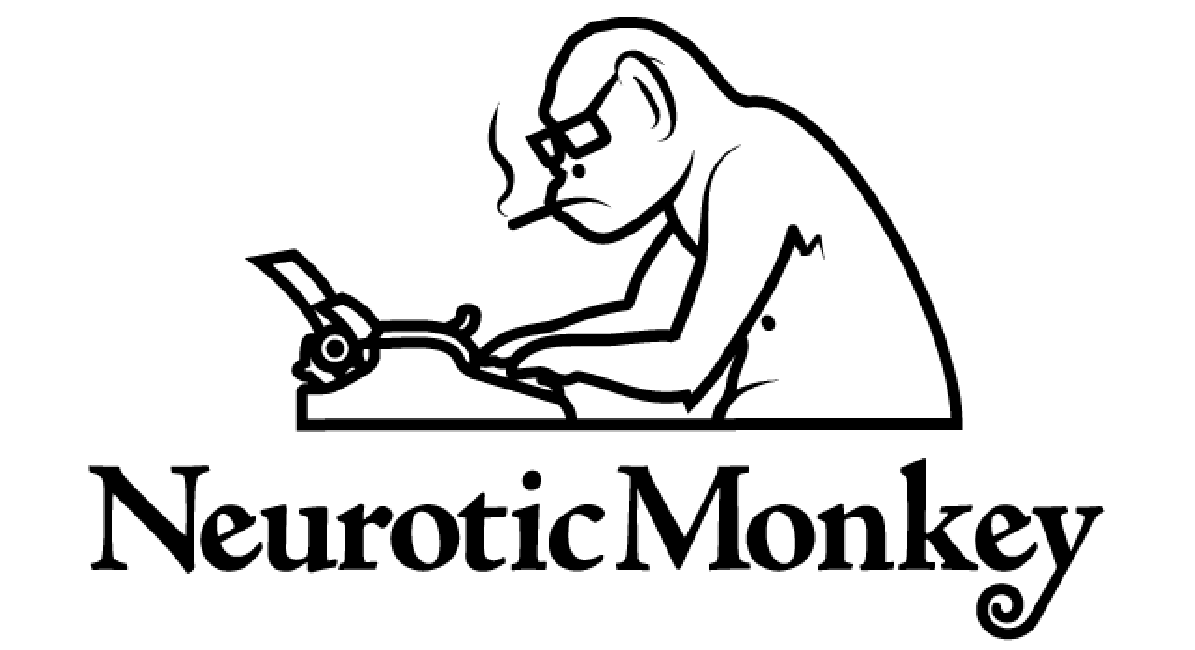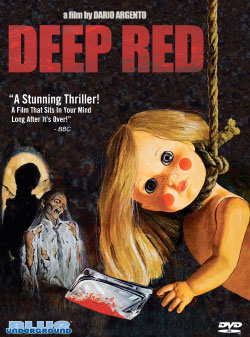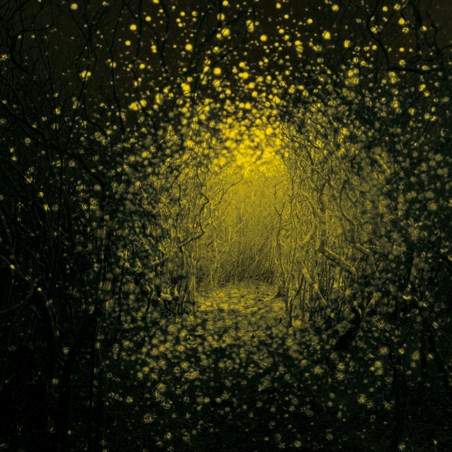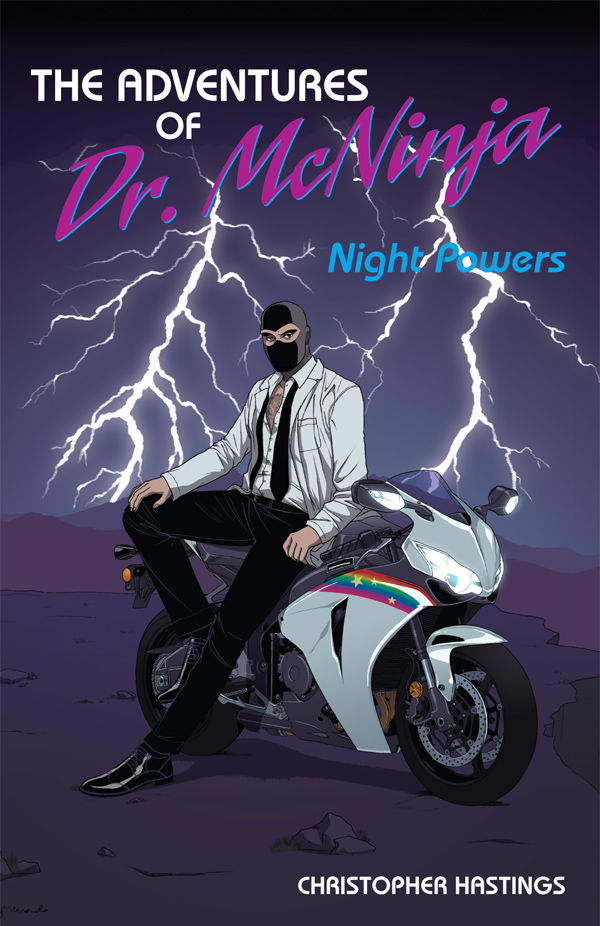Comic Book Industry Needs to Think Outside the Panels
 Rob Dean On
Rob Dean On  Wednesday, June 1, 2011 at 2:00PM
Wednesday, June 1, 2011 at 2:00PM  Remember how in last week's Immodest Proposal I was talking about characters on The Simpsons aging and I wrote:
Remember how in last week's Immodest Proposal I was talking about characters on The Simpsons aging and I wrote:
And I know that it seems like this is just an extension of the Fanboy mentality that wants the stuff he likes to age with him and not to serve younger people as it served him in his youth. Maybe, and I'll address that next week
I was planning on using this week's post to talk about the issue of continuity, about preserving narratives for some communities and how it may come at a price of alienating other groups. Honest, I was! And, more importantly, I was going to examine the inherent tension that exists between aging groups of fans and the need to bring in fresh blood and new eyes. Luckily, Divine Providence has dropped this story into my lap in a fit of cosmic synchronicity (I'm guessing that's what Jesus was up to instead of Rapturing folks): Starting in September, DC Comics (that's Detective Comics Comics, for you keeping score) will relaunch all their titles (about 50 or so) with new #1 issues. The editors are saying some continuity will be preserved while others will be jettisoned, or updated; what this probably will mean is that it'll be a big mess of old stories blended in with Clark Kent tweeting and everyone meeting this newfangled Wonder Woman for the first time, or something.
But it underscores a real issue in the world of comic books: how do you honor the lifelong fans without distancing yourself from potential new ones? How do you serve adults and children without condescending to the adults or exposing children to subject matter that's too mature for them? My immodest proposal is that comic books need a new dynamic based on a carefully plotted strategy to attract new readers.
Continuity has been a problem for comics for a long time - as is customary for any storyline that has been going on for about 70 years (look at soap operas), let alone a shared universe that is constantly set in "present day." DC Comics has tried multiple times to re-set the history and origins of its characters, starting in the 80s with Crisis on Infinite Earths. The constant need to re-configure their comic universe is ironic as DC is considered to have the more iconic, archetypal characters (Superman, Batman, Wonder Woman), and yet editors are constantly fiddling with the backstories of these modern myths. Each attempt at creating an updated origin has brought with it a mix of old and new, again attempting to serve multiple masters, and the status quo is only maintained until the next shake-up. DC's attempts at repositioning their characters and stories is done so that core titles (Batman, Action Comics, Flash, Green Lantern) will stay on the shelves; covers and titles instantly recognizable for all by the titles and characters, if a bit different with the origins and backgrounds.
The other way DC has addressed this issue of re-setting their stories is through so-called "Legacy" characters - older versions of well known heroes that "pass" on the mantle to kid sidekicks by dying, or retiring or who knows what; for example, there are at least 4 Flashes, at least 5 Green Lanterns from Earth, a few Robins and a handful of Atoms. Again, this preserves the continuity, stories and characters that fans remember fondly and cherish while moving on to the new model for younger people to (hopefully) embrace and worship. Originally, these characters were each from a different reality (Earth-1, Earth-2, Earth-Prime, etc.), but then those realities were collapsed into one to make it easier for people to follow/care about the stories, but then some of the realities came back, and then they left...or something - it becomes a bit of a mess.
Marvel Comics has always been less about the iconography and archetypes of its characters and more about the human, relatable side of things; origin stories and continuity are important because it's through these events that we learn about these characters with whom we identify. So while there's certainly a pliable aspect of the roles of the heroes (for example, X-Men always equal whatever minority is currently being oppressed), it's harder to revise their stories since the stories are the hook.
Marvel's solution to the quagmire of multiple realities and time traveling and decades of story logs has been to create new "lines" or imprints of comics. The Ultimate Universe capitalized on the recent successes of the X-Men and Spider-Man films by updating familiar characters, making them modernized and easily accessible to jump on without having to know 40 years of history of a character. Unfortunately, in only 10 years, the line has become weighed down by its own convoluted continuity - a good example of how quickly comics need to be refreshed.
The other line that Marvel created was the all ages Marvel Adventures line which is the G-rated version of their characters - fighting, but no blood or killing, no death or darkness, and no need to have an encyclopedic knowledge of the past century of comic books. While Adventures line is all ages, it's actually a lot of fun and is where truly imaginative writers shine depicting the aspects of these heroes they fell in love with as a kid. It's more of a Pixar approach (fitting as Disney just acquired Marvel) - it's suitable for kids but entertaining for adults. Also - there's an issue where all of the Avengers become MODOKs.
 Even with these multiple solutions to the same problem of catering to loyal fans while attracting new consumers, the fresh blood isn't coming. For a while, Manga was blamed, and then lack of digital comics, and then the fact that comics are pretty much only available at book stores and comic shops. Meanwhile, comic book characters continue to be popular in every other entertainment medium: movies, animated shows, video games, toys, etc. Kids love these characters, but they're not getting the books.
Even with these multiple solutions to the same problem of catering to loyal fans while attracting new consumers, the fresh blood isn't coming. For a while, Manga was blamed, and then lack of digital comics, and then the fact that comics are pretty much only available at book stores and comic shops. Meanwhile, comic book characters continue to be popular in every other entertainment medium: movies, animated shows, video games, toys, etc. Kids love these characters, but they're not getting the books.
What's the solution? Completely start anew as DC (alleges) they are doing this Fall? Create multiple offshoots designed for a specific audience that, itself, will require continuity maintenance over the years? Some sort of gambit on a paradigm shift in mentality and approach to sales?
My immodest proposal is a hybrid:
- Rebrand current titles that FanBoys Love: You know who can easily comprehend minor aesthetic changes? Adults aged 18+. They may not cope with these things well, but they understand them. Re-brand your series - which publishers often do just for marketing purposes - with a different name and have that title go to comic book shops and inspires debate after debate in internet forums throughout the multiverse. These will be the highest price point comic - we're not talking double digits, but around $4 - $5 (which most of them are now). FanBoys will understand that it's the same creative team, built on the same narrative history, but just with a slightly different banner on the cover.
- Figure Out Core Titles, Make Those The Public Face of Characters: Action Comics, Detective Comics, Amazing Spider-Man, The Avengers - these are titles that have been around for decades. They are recognizable and easy to trade on. Have these comics, with these specific titles, ship to grocery stores, WalMarts, K-Mart, etc. Make it easy for non-comic book shops to procure copies and put them on display for children to grab. Have the stories be self contained, or at least not spread over dozens of issues. They'll be all ages, but not dumb or goofy - fun comics that can have darker moments, but isn't weighed down by rape and murder or mythology. Make this the lowest price point comic possible ($1.99 - $2.99), as the focus is on volume.
- Intermediate Titles With a Specific Shelf Life: Comic publishers need to learn how to properly capitalize on other media success. Thor just came out - what's he up to in the comics? Yep, as you'd expect, he just left his Asgard on Earth (in Oklahoma) in chains while Serpent god attacks the planet. I'm not saying you should write to the lowest common denominator - but if you go from a movie, all jazzed about what you saw, and you pick up the recent comic that the movie is based on...it needs to recapture that same energy. To that end I propose a third branch of comics - an intermediate level - that's akin to Ultimate Universe: it would be updated and revised for modernity, it would have more complicated stories and a microcosm of continuity, it would be tied in to the latest releases in movie/TV/video games, and it would only be around for a set number of years. You know when Lost got kind of good again? When the producers knew how long they had to tell the tale. So if you have a comics team that knows they have 5 years to tell their tale, they can plot out everything they want to cover in those 60 issues and draw it to a satisfactory close. At the end of 5 years, the readers can "graduate" to the more adult/fanboyish versions, and a new Intermediate version will begin again.
- Digital Comics for All: Digital comics, specifically on phones and tablets, is the future. Yes, Tom Hanks in Big was right all those years ago. Comic publishers need to release their books in digital format, same day/date as the print versions, cheaper, and available in a wide variety of platforms/formats. Digital stores will be set up, recommending related titles, creators, etc. and there will be clear delineation between the FanBoy, Core and Intermediate Titles.
Personally, I think comics are currently in a renaissance - but unfortunately that's mostly for non-children, non-novice readers. Writers and artists are creating brilliant new stories, characters and titles that push the medium and elevate the conversation. Every year it seems like we're getting closer to bringing comics out of the  ghetto of juvenilia, which is an ironic situation: comics are being read by less children, but they are still seen as something childish and immature - no matter how much money their properties make. It's important to respect those people that have stuck by and championed the art form and helped it grow, but to do so at the cost of new readers is to sell the future for the present - it's a no-win situation. By thinking in new dynamics, superhero comics will attract more readers and will continue to turnover these readers into other fare - mystery, western, sci-fi, horror, etc. - as they get older.
ghetto of juvenilia, which is an ironic situation: comics are being read by less children, but they are still seen as something childish and immature - no matter how much money their properties make. It's important to respect those people that have stuck by and championed the art form and helped it grow, but to do so at the cost of new readers is to sell the future for the present - it's a no-win situation. By thinking in new dynamics, superhero comics will attract more readers and will continue to turnover these readers into other fare - mystery, western, sci-fi, horror, etc. - as they get older.
Of course....I could be wrong.
References (16)
-

-

-
 Source: DC Comics Number One Stunna
Source: DC Comics Number One Stunna -
 Response: united states gold bureau reviewComic Book Industry Needs to Think Outside the Panels - The Neurotic Monkey's Guide to Survival - The Neurotic Monkey's Guide to Survival
Response: united states gold bureau reviewComic Book Industry Needs to Think Outside the Panels - The Neurotic Monkey's Guide to Survival - The Neurotic Monkey's Guide to Survival -
 Response: Eyelash Extensions SydneyComic Book Industry Needs to Think Outside the Panels - The Neurotic Monkey's Guide to Survival - The Neurotic Monkey's Guide to Survival
Response: Eyelash Extensions SydneyComic Book Industry Needs to Think Outside the Panels - The Neurotic Monkey's Guide to Survival - The Neurotic Monkey's Guide to Survival -
 Response: SEO CalgaryComic Book Industry Needs to Think Outside the Panels - The Neurotic Monkey's Guide to Survival - The Neurotic Monkey's Guide to Survival
Response: SEO CalgaryComic Book Industry Needs to Think Outside the Panels - The Neurotic Monkey's Guide to Survival - The Neurotic Monkey's Guide to Survival -
 Response: Solicitors AucklandComic Book Industry Needs to Think Outside the Panels - The Neurotic Monkey's Guide to Survival - The Neurotic Monkey's Guide to Survival
Response: Solicitors AucklandComic Book Industry Needs to Think Outside the Panels - The Neurotic Monkey's Guide to Survival - The Neurotic Monkey's Guide to Survival -
 Response: Syndicate MortgagesComic Book Industry Needs to Think Outside the Panels - The Neurotic Monkey's Guide to Survival - The Neurotic Monkey's Guide to Survival
Response: Syndicate MortgagesComic Book Industry Needs to Think Outside the Panels - The Neurotic Monkey's Guide to Survival - The Neurotic Monkey's Guide to Survival -
 Response: create online storeComic Book Industry Needs to Think Outside the Panels - The Neurotic Monkey's Guide to Survival - The Neurotic Monkey's Guide to Survival
Response: create online storeComic Book Industry Needs to Think Outside the Panels - The Neurotic Monkey's Guide to Survival - The Neurotic Monkey's Guide to Survival -
 Response: Home Ventilation SystemComic Book Industry Needs to Think Outside the Panels - The Neurotic Monkey's Guide to Survival - The Neurotic Monkey's Guide to Survival
Response: Home Ventilation SystemComic Book Industry Needs to Think Outside the Panels - The Neurotic Monkey's Guide to Survival - The Neurotic Monkey's Guide to Survival -
 Response: Infusionsoft Consultant SydneyComic Book Industry Needs to Think Outside the Panels - The Neurotic Monkey's Guide to Survival - The Neurotic Monkey's Guide to Survival
Response: Infusionsoft Consultant SydneyComic Book Industry Needs to Think Outside the Panels - The Neurotic Monkey's Guide to Survival - The Neurotic Monkey's Guide to Survival -
 Response: Ducted Roof Ventilation SystemsComic Book Industry Needs to Think Outside the Panels - The Neurotic Monkey's Guide to Survival - The Neurotic Monkey's Guide to Survival
Response: Ducted Roof Ventilation SystemsComic Book Industry Needs to Think Outside the Panels - The Neurotic Monkey's Guide to Survival - The Neurotic Monkey's Guide to Survival -
 Response: read what he saidComic Book Industry Needs to Think Outside the Panels - The Neurotic Monkey's Guide to Survival - The Neurotic Monkey's Guide to Survival
Response: read what he saidComic Book Industry Needs to Think Outside the Panels - The Neurotic Monkey's Guide to Survival - The Neurotic Monkey's Guide to Survival -
 Response: sell my product onlineComic Book Industry Needs to Think Outside the Panels - The Neurotic Monkey's Guide to Survival - The Neurotic Monkey's Guide to Survival
Response: sell my product onlineComic Book Industry Needs to Think Outside the Panels - The Neurotic Monkey's Guide to Survival - The Neurotic Monkey's Guide to Survival -
 Response: selling online tipsComic Book Industry Needs to Think Outside the Panels - The Neurotic Monkey's Guide to Survival - The Neurotic Monkey's Guide to Survival
Response: selling online tipsComic Book Industry Needs to Think Outside the Panels - The Neurotic Monkey's Guide to Survival - The Neurotic Monkey's Guide to Survival -
 Response: Green Lantern Corps Movie
Response: Green Lantern Corps Movie









Reader Comments